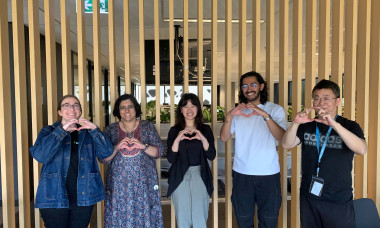'Fundamental' international education shift creating digital demand
International education providers can be forgiven for wanting the world to return to the way it was. With steady flows of international students, predictable and growing revenue streams and a future ripe with opportunity to grow student cohorts onshore, who wouldn’t want to turn back the clock?
That might not be possible. As Head of Austrade’s International Education Centre of Excellence Melissa Banks summarised in comments given at the 2021 EduTech conference, what we are seeing across the globe now is an irrevocable change in the market – with digital at the centre.
“A fundamental shift has occurred in the market that has been accelerated by Covid-19,” she said.
“While traditional models for international education will continue to be needed and some existing markets will continue to grow in prominence into the future, new market segments will emerge.”
Three student personas to watch
The news isn’t all bad. As ReadyTech detailed in its The Future of International Student Lifecycle Management eBook, the past few years have given international educators an opportunity to think differently about the service and value provide – and how they might provide it into the future.
With the world moving online – and some current regulatory relief for education providers who want to provide services offshore – the market has new opportunities to explore for growth. Austrade has identified three student personas as ones to watch for international providers. While they were present before, they are moving to the forefront of industry thinking about the future.
1. Career enhancers
These international students are already mid-career professionals. They are seeking qualifications and knowledge from an internationally recognised brand that can be certified by a credential online, in ways that will not disrupt their working lives by having to travel to study internationally.
They are seeking online, enhanced interactivity with peers, that will support the growth of their networks, knowledge and skills. They also value return on investment over student experience. Think a mid-level manager seeking to level up industry-relevant expertise or leadership skills.
2. Hybrid learners
Hybrid learners are the new generation of pre-career qualification seekers, who want to access a more flexible knowledge based curriculum that will give them options on where to study and reduce overall costs. Starting offshore, they still want to inject onshore learning into the experience.
Hybrid learners – just like cohorts of full-time international students onshore – will continue to place experience over value, being willing to pay (with the support of families) for that once in a lifetime opportunity. Hybrid learning is here to stay and will become a larger slice of the pie for providers.
3. Self-improvers
Self-improvers are pursuing learning out of personal interest and passion and would pursue it with or without recognition. They want online delivery from providers for ease of access and are much more likely to choose free or low-cost subscription services rather than expensive learning options.
The digital ingredient
All of these student personas have one element in common: they are enabled by international’s digital transformation. As Austrade’s Melissa Banks says, this trend is not going away, and will continue to drive growth in these personas, as well as markets like pure online degrees.
“Online degrees are attractive to some and we haven’t focused on that. The US and the UK have established success. For example, the UK has ten times the number of international students enrolled in wholly online degree programs and five times the number of transnational students.”
The key to the future will be an ongoing embrace of the potential of digital transformation.
“For providers able to invest further in digital capacity to provide a high quality, affordable, accessible learning with an engaging student experience with professional accreditation and industry recognition there will be opportunities,” Melissa Banks says.
ReadyTech’s head of strategy and innovation, Chris Smith, says Covid-19 and other factors have caused a ‘tipping point’. “If Australia is to remain competitive in international education, technology adoption and a commitment to creating demand-led products and services must be central.
“It may be obvious, but curating the best possible student experience, promoting teaching excellence and providing well understood and well supported pathways to further study, employment and migration will offer the best platform for recovery,” he says.
Read more about the future of international student lifecycle management. Download our eBook:






